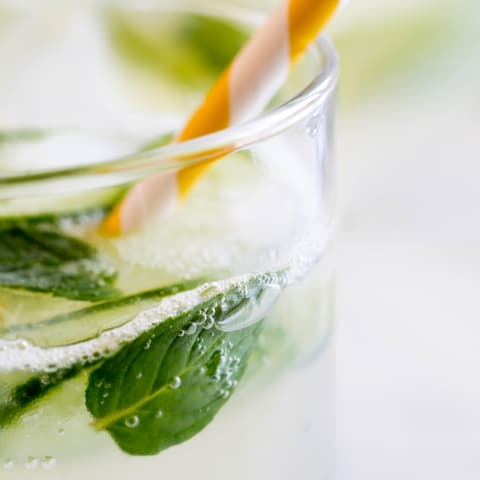Quinine has a distinct bitter flavor that many found almost unpalatable, making it hard to enforce patient treatment compliance. To dilute the flavor, water and sugar were added, and tonic water was born. The British Army stationed in India regularly rationed this antimalarial concoction throughout the 19th century in an attempt to treat and prevent malaria. Legend has it that British generals, eager to further improve the taste of the bitter beverage, began mixing their daily tonic water with gin, inventing the classic cocktail: gin and tonic. Although it was still not entirely understood how quinine combats malaria, it continued to be the primary medication for malaria until the mid-20th century—despite the fact that it’s not 100 percent effective, it was found to cause a combination of unpleasant side effects, coined cinchonism3, which include nausea, vomiting, vertigo, headaches, and in more serious cases, deafness. Fortunately, scientific discoveries in the 20th century led to the development of safer and more effective drugs for malaria. However, quinine, in the form of tablets or injections, is still used as an alternative treatment, especially when combating antibiotic-resistant strains of malaria or when more expensive new treatments are not available. There is, however, a very small percentage of the population that is allergic to quinine7. For them, a sip of tonic water can crash their platelet levels and cause kidney failure. If you have a quinine allergy, you must completely avoid tonic water and any quinine-containing beverages. Some people also believe that tonic water may be dangerous to consume during pregnancy, due to the quinine. The FDA has categorized quinine in therapeutic doses as a Class C drug, meaning there is not enough research to deem it safe or unsafe. There have been some adverse events reported in pregnant women taking quinine for malaria. Large doses of quinine should be avoided during pregnancy, if possible. There is no scientific evidence that the extremely low concentration of quinine in tonic water is unsafe to consume during pregnancy, and the FDA does not prohibit its consumption. So, whether you’re sipping a G&T or a refreshing tonic mocktail, you can rest easy knowing the tonic is safe to drink and raise a glass to the amazing history of tonic water. Looking for a refreshing cocktail recipe? Check out this matcha mojito. McDonough has developed & lead nutrition education programming in schools. She’s covered a wide range of topics as a health & nutrition reporter from the rise in the use of psychedelics for depression to the frustrating trend in shorter doctors’ appointments and the connection between diet and disease.




